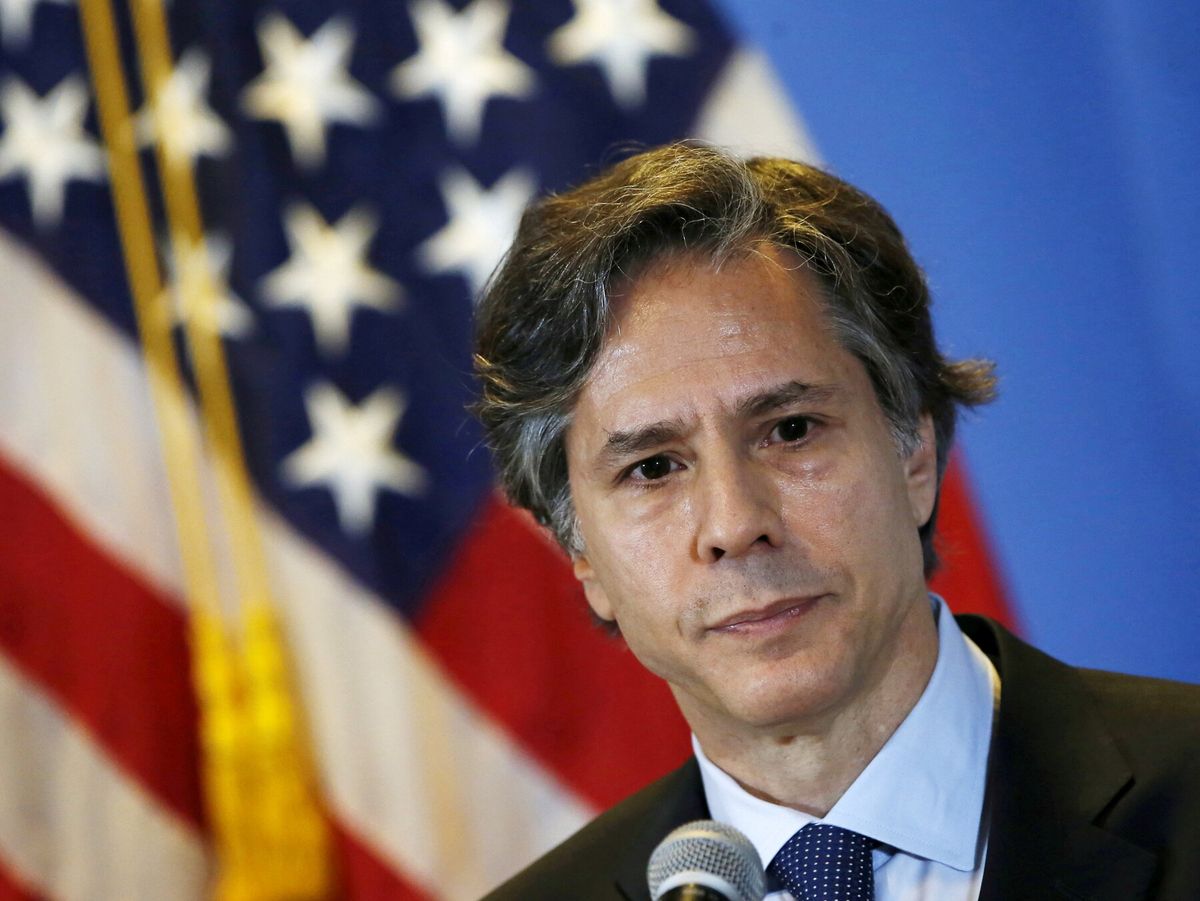Who is Antony Blinken?

A few minutes every morning is all you need.
Stay up to date on the world's Headlines and Human Stories. It's fun, it's factual, it's fluff-free.
From 2009 until 2013, Blinken helped shape the Obama administration’s policy on Afghanistan, Pakistan and the Iranian nuclear program.
With the presidential transition process having finally begun, President-elect Joe Biden has wasted no time in naming a number of individuals to various cabinet positions – pending Senate confirmation. Biden has named Antony Blinken, who has worked with him for years, as his secretary of state.
As secretary of state, Blinken will have the task of advising the president on matters concerning foreign policy and will be charged with conducting international negotiations and overseeing immigration laws, among other things.
Blinken’s background
Blinken has extensive experience working with previous administrations and has previously worked and lived abroad. He first served as deputy secretary of state under President Bill Clinton then as deputy national security adviser under President Barack Obama. From 2009 until 2013, Blinken helped shape the Obama administration’s policy on Afghanistan, Pakistan and the Iranian nuclear program.
Blinken attended École Jeannine Manuel school in his youth and has given multiple interviews in French, which he is fluent in. With such a strong connection to France, it should come as no surprise that Blinken wishes to restore the United States’ relationship with the European Union. Bliken has described the 27-member political and economic bloc as a “vital partner” to America.
Blinken’s relationship with Biden goes back to 2002, when he worked as Biden’s top aid.
No more “America First"
The current State Department, led by Secretary of State Mike Pompeo, has followed President Donald Trump’s “America First” mindset in its dealings with the rest of the world. In a reflection of views often espoused by Trump, Pompeo gave a speech at the German Marshall Fund in which he said, “Multilateralism has too often become viewed as an end unto itself. The more treaties we sign, the safer we supposedly are. The more bureaucrats we have, the better the job gets done.”
The Trump administration has pushed back heavily against treaties and agreements like the North American Free Trade Agreement (NAFTA) and the US’ commitment to the North Atlantic Treaty Organization (NATO).
As secretary, Blinken would be sure to provide a contrast to Trump and Pompeo’s “America First” point of view. In a piece written by Blinken and historian Robert Kagan for the Brookings Institute running down the current problems facing the world – ranging from the rise of autocrats, foreign manipulation and the climate crisis – the two argue that “Doubling down on ‘America First,’ with its mix of nationalism, unilateralism and xenophobia, would only exacerbate these problems.”
Blinken and Kagan go on to say that the US must “supplement diplomacy with deterrence,” adding that “force can be a necessary adjunct to effective diplomacy.” Blinken put these words into action under the Obama presidency by advocating for strong military support to foreign countries, most notably in Syria and Libya.
If he’s approved by the Senate, Blinken will face many challenges as secretary of state. The Trump administration has made numerous cuts to the State Department and, by September 2017, the number of employees in the department had dropped by an alarming 11.9%.
Not only does Blinken have to restore alliances with countries around the world, he also has to rebuild the trust and morale of State Department employees at home.
Does a confirmation battle await?
Blinken still has to go through a Senate confirmation trial, similar to the one he experienced in 2014 when he was confirmed as the deputy secretary of state. It is still unclear which party will control the Senate, but unless Democrats win both seats in the Georgia runoff elections on January 5, Republicans are almost certain to hold the Senate for another two years. To gain confirmation, nominees need 51 votes in their favor. If recent history is anything to go by, these votes are likely to tow the party line.
The current Republican-led Senate has said essentially little regarding any of Biden’s picks for his cabinet. If the party remains in control, it’s unclear just how obstructionist Republican Senate Majority Leader Mitch McConnell is likely to be.
Nevertheless, some Republicans have already made their positions very clear. Senator Tom Cotton of Arkansas has tweeted his contempt of Biden’s picks, saying the president-elect is “surrounding himself with panda huggers who will only reinforce his instincts to go soft on China.”
Meanwhile, Republican Senator Marco Rubio has a history of clashes with Blinken. In 2014, Rubio, a Cuban-American, questioned Blinken over the latter’s desire to lift sanctions on Cuba.
Without directly commenting on Blinken, Rubio tweeted his general distaste for Biden’s cabinet picks, tweeting, “I have no interest in returning to the ‘normal’ that left us dependent on China.”
As these sentiments make clear, President-elect Biden is certain to face challenges getting Republican support for his agenda and his pick for secretary of state may be one of the first battles of his presidency. Even if confirmed, Blinken will have a steep hill to climb, requiring him to first rebuild the State Department before he’s able to work at reestablishing strong diplomatic ties abroad.
Have a tip or story? Get in touch with our reporters at tips@themilsource.com




Comments ()